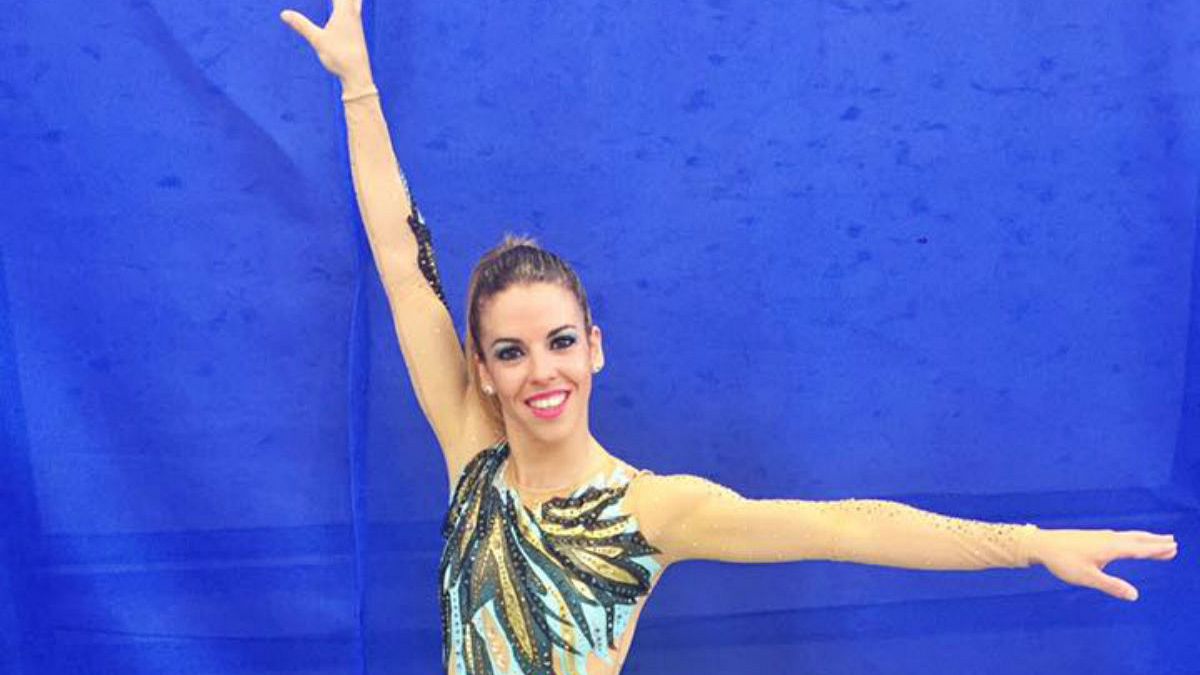Mònica Gimeno has to balance her job and her sport, despite her status as a five-time European champion
Mònica Gimeno is a ten-time national champion, she holds five European titles and is currently competing for a world title. But she’s far from being a professional athlete, having to fit her practices in around her job coaching.
Her sport is artistic roller skating, which peaks this year at the World Roller Games taking place this week in Nanjing, China.
“I try to train in the morning or at noon, depending on how many hours I have free, because then every afternoon I have to work as coach. On Saturdays and Sundays there are competitions, either mine or the girls in the club where I’m coach, or exhibitions, so on weekends are also quite busy,”, she told Euronews.
To prepare for high level championships, summer is the best time to step up the rhythm: “I do what I can with the time that I have. When the school ends in June, and especially August, when we have holidays, we can devote more time to training. The problem is that this year the World Cup begins in August”.
Gimeno started to skate aged six and at nine she began to participate in tournaments and championships. Although she does receive some state support, around €4,000 a year, she needs to supplement her income by working as a coach at her club, the Mollerussa in Catalonia, and participating in shows.
At least it’s a level playing field, she concedes. With most of her competitors facing the same constraints she does
“The pioneer country is Italy,” she says, “but I think skaters there are not in a better situation either. Sometimes they’re funded, for example, by their families who can afford it. I think it’s more like this than public scholarships. You find people who do train more hours than I do, who do not need a side job, but because they pay for it, not because of the aid from the state. It’s something cultural, in a country like Italy people are more willing to pay in that regard”.
Despite the budgetary constraints, the Spanish Federation doe contribute where it can: “When we go to a World Cup so far, like China, it pays for everything, except in some cases. But only if we’re going to European or World Championships. When you want to participate in other international competitions you have to pay for yourself. “
Something similar happens with coaches at these events: “The Federation chooses the official coach, and if you are lucky that he or she is also your own coach, then you are lucky not to have to pay anything. If you have another coach and you want your coach to come, with whom you have worked all year, either you pay or you ask your club to pay, but it’s something you have to manage yourself. In this case, for China, the Federation choose three official coaches because we are so many skaters, but it only pays the trip of two. The expenses of the third person are divided among the three who are coming. In my case I am very lucky, because my coach is part of the official staff, and also very lucky with my club, who has paid the part that corresponds to my coach.
Learning on ice
As Gimeno bids to take her first world championship she will lean heavily on the experience she gained during a “career break” where she focused on ice skating. Because the winter sport has a place in the Olympics it benefits from better funding and more technical understanding.
Her experience “has changed everything” – she explains. “It was not premeditated. I did not decide to change disciplines, from wheels to ice. In my case, I left roller skating and after half a year I went with a friend to ice skate, I liked it and I started to practice. I started from scratch. I asked her to explain everything to me, as if it were another sport. “
“I changed all my technique; I did not skate at all like I used to do before on roller skates. There are things, some jumps for example, that I do in a very different way than I used to do before switching disciplines. I came back with a level far higher than when I left. Far better.”
